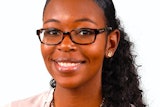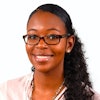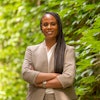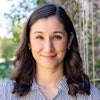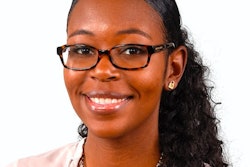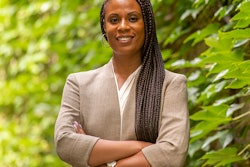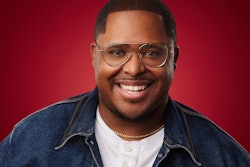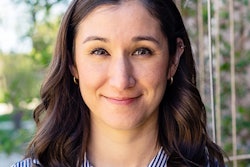Title: Associate Professor of Counseling, Department of Disability & Psychoeducational Studies, University of Arizona, Affiliate Faculty, Education Policy Center, University of Arizona
Tenured: Yes
Age: 37
Education: B.S., middle school math & social studies education, University of Missouri, Columbia; M.Ed., school counseling, University of Maryland, College Park; and Ph.D., counselor education & supervision, The Ohio State University
Career mentors: Dr. James L. Moore, III, The Ohio State University; Dr. Donna Y. Ford, The Ohio State University; and Dr. Cheryl Holcomb-McCoy, American University
Words of wisdom/advice for new faculty members: “Know your why and let that guide you on your academic journey. Understand that you need not engage in every opportunity or issue presented to you, but when you do say yes, make sure it’s connected to your why.”
Dr. Renae D. Mayes has excelled as a scholar and researcher to the extent that she has published over 44 peer-reviewed articles and 18 book chapters. She also received a 2015 Outstanding Dissertation Award from the American Educational Research Association.
Although she has reached such heights in her scholarship, she began her college journey with little information or direction about academia, in part because she lacked counseling in high school.
“I didn’t even know what graduate school was until I was an undergrad,” Mayes recalls. “I’m first-gen, and I thought I had made it [by] just getting into a bachelor’s program.” It took the Gates Millennium Scholars and the Ronald E. McNair Postbaccalaureate Achievement Program to enlighten her about graduate and research opportunities.
Mayes says: “I had the chance to go to the Gates Millennium leadership conference — it’s always very fulfilling — and because I was a junior, they were like, ‘hey, have you thought about graduate school?’ and I said, ‘I don’t know what that is, what do you mean?’”
That began the conversations that led her to scholarly ambitions. “They planted the seed that graduate school was possible,” says Mayes. She completed her Ph.D. in counselor education at The Ohio State University, where she was a Todd Anthony Bell Fellow after obtaining undergraduate and master’s degrees at the University of Missouri and the University of Maryland, College Park, respectively.
Mayes says research by scholars, particularly Dr. Cheryl Holcomb-McCoy, intrigued her. “At that point I knew I was going to graduate school . . . I [was] interested in doing school counseling, because Dr. Cheryl Holcomb-McCoy was talking about that as something that can be really transformative in K-12 schools.”
Mayes says she was also interested because she had experienced a lack of counseling herself and because of a family member who happened to fall into two groups. “I started out in the research world really focusing on Black youth who are gifted and who also have disabilities. I was fascinated by it because we know Black youth are overrepresented in special education and underrepresented in gifted [education]. I felt it was an important place to start, tying the worlds of special education and gifted education together.”
As an example, she authored a 2018 article on the experiences of a gifted Black male with a traumatic brain injury. Mayes says her most rewarding experiences have occurred in her work directly with community organizations and school districts to create programs and help train school counselors to be more culturally responsive to Black youth.
Currently, she is leading a three-year project supported by a $1 million grant from the U.S. Department of Health and Human Services to examine the academic experiences of Black students in Richmond, Virginia, public schools, and how those experiences are affected by other aspects of students’ identities, such as gender, class, or disabilities. Mayes says the project focuses on the students’ strengths despite the challenges they may experience in school, such as poor funding to school districts or a lack of training for faculty and staff. She points out that often programs set up to address the problems “[are] not created with students and families at the table, so school ends up being something that is done to children and adolescents rather than something done with families and students. So, I feel like this is a really cool opportunity for policy to be created with students and families,” Mayes explains.
Dr. Erik Hines, a professor in the College of Education and Human Development at George Mason University, and one of Mayes’ mentors, commends her perspective. “Dr. Mayes is a transformational leader in counselor education as seen by her scholarship and impact on the profession. The majority of her work has consistently brought attention to how school counselors can assist the most vulnerable students, in particular Black students, from a strengths-based paradigm in becoming academically successful in PK-12 educational settings,” he wrote in his nomination letter to Diverse.
“I think there’s so much joy in Blackness,” Mayes says. “I don’t want to add more stories of sorrowfulness and pain. I want us to understand that being Black is dope. It’s so amazing and great. Let’s talk about that!”
